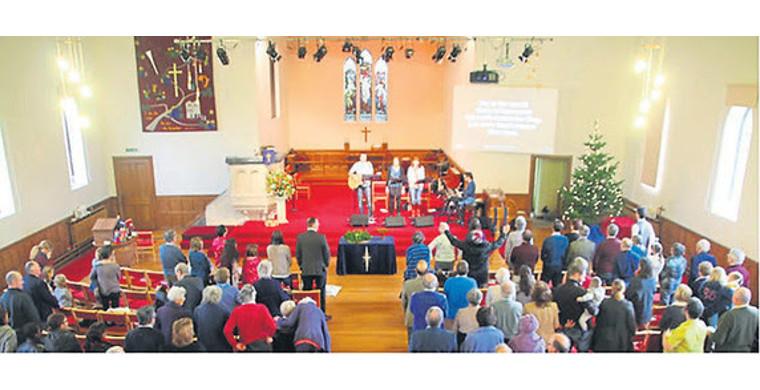SCOTTISH ANGLICAN NETWORK: CONTENDING & LEARNING
St. Thomas' Church, Edinburgh, has a long history as an evangelical congregation.
By The Revd David McCarthy
Evangelicals Now
Sept. 20, 2018
It was founded in 1844 as an Independent Anglican Church, following the introduction of the Oxford Movement to the Scottish Episcopal Church (SEC). It gradually grew closer to SEC from the 1940s onward. Rectors have included George Duncan, Gordon Bridger (later of Oak Hill College), John Wesson (later of Trinity College, Bristol) and Philip Hacking (later of Christ Church Fulwood, Sheffield).
Highs to lows
Since 1985 it has transplanted members into one ageing congregation, St Paul's & St George's Edinburgh, through which the Lord has brought renewal and transformation, and also planted a new congregation nearby.
We joined the SEC in 1989, mostly because these plants were in the SEC and it seemed odd not to be one with them. The hope was to see the Lord continue to bring faithful biblical witness to the heart of the church and to the world. Sadly, it has proved to be an uneven yoking which has at times threatened the evangelical stance of the congregation.
When ministering in a liberal denomination, one runs the great risk of becoming more like that denomination than it becoming more biblical. In recent years, we have sought to maintain the biblical and pastoral understanding of marriage as being a lifelong union between one man and one woman.
Unfortunately, the denomination has been undermining such teaching and care by working to change marriage doctrine so that people of the same sex could marry. As a result, St Thomas' and other evangelical congregations and individuals now find themselves under the leadership of bishops and the authority of canon law which present two distinct understandings of marriage.
How did we get to this point?
In 2005, we established the Scottish Anglican Network (SAN) in response to the Scottish bishops' public declaration that being in a same-sex relationship was not a bar to ordination. The SAN is a grouping of ten churches which sought to persuade the SEC to keep the biblical understanding of marriage (www.scot-tishanglican.net). Since 2005 we have sought dialogue and, for a while, it appeared that we were gaining some traction. Some of our leaders were appointed to lead mission in dioceses or given other provincial responsibilities. The leading bishop pronounced that 'evangelicals are the new establishment'.
However, some evangelicals knew that the red line would be whether the doctrine of marriage changed and they resolved to prevent that. With that in mind we made sure we had a presence at the first GAFCON in Jerusalem in 2008 and developed stronger links with that movement, to ensure that we would have appropriate oversight should that change ever be implemented.
Sadly, all our efforts failed when, in June 2017, the General Synod narrowly voted in favour of canonical change. By the autumn of that year the first same-sex marriages were being conducted by willing clergy.
Some have responded
In November 2017, the small congregation of Christchurch, Harris in the Western Isles courageously walked away from the church they built and maintained in order to establish a new Anglican presence on the island. In May 2018, St Thomas' congregation voted 72% in favour of supporting our leadership in seeking disaffiliation from the SEC. We hope to complete this process by the end of the year.
What we have we learned?
1. We can't assume that everyone in an evangelical church is on the same page -- some are changing their view on this issue, often because they find it difficult because they have same-sex attracted family members or friends.
2. We had to be prepared to lose people we love -- the culture is strong and 'love is love' can all too easily override Bible truth.
3. We learnt to rely on lay leadership to deal with denominational matters -- this took some of the pressure off clergy.
4. The denomination tried to win us over -- responsibilities and honours were given. Cultivating institution loyalty was expected to blunt opposition to doctrinal change.
5. We needed to pray continually.
6. Leaders needed to have people outside the situation who are praying for them.
7. We needed to take wise counsel from others.
8. We needed to be ready for pain and many sleepless nights -- there is a personal cost to standing up on this issue.
9. We needed to guard our hearts and lives: health, finances, marriages and relationships will all come under immense pressure. This is a spiritual battle.
10. International links were most important -- we are grateful for the support of GAFCON, and many other links with orthodox people around the world.
The Revd David McCarthy is vicar of St Thomas', Costorphine, Edinburgh














